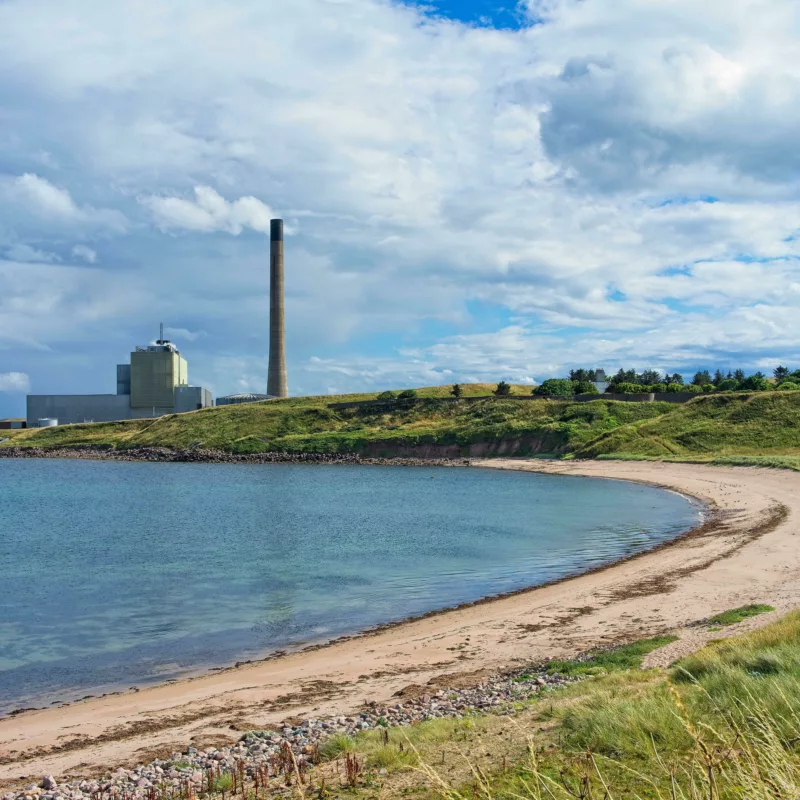
Scottish Cluster

Scotland is blessed with huge CO₂ storage potential and existing energy infrastructure which can be readily repurposed to decarbonise Scotland and the UK, create sustainable jobs and develop new industries.
The Scottish Cluster brings together Acorn, National Gas Transmission’s SCO₂T Connect Project (a pipeline repurposing project which links the Central Belt with North-East Scotland) and a variety of industrial, power, hydrogen, bioenergy and waste-to-energy businesses.
Of the UK’s potential 78 billion tonnes of cost effective storage, 75% is in Scottish waters in the central and northern North Sea. The Scottish Cluster aims to make the most of this potential by opening access to infrastructure for CO₂ reduction projects aligned to the country’s net zero goals.
The projects in the Scottish Cluster have the potential to abate up to 10 million tonnes of CO₂, per year, by 2030 – that is up to one third of the UK Government’s total CO₂ emissions reduction target for that year.
The Cluster has three key pillars:
Customers (carbon emitters)
Multiple emitters across Scotland and beyond, providing opportunities to create and preserve jobs, support local supply chains, and create fully integrated carbon capture and storage (CCS) developments.
Onshore infrastructure
By working with National Gas Transmission to repurpose existing onshore infrastructure, the Scottish Cluster will limit the costs of CO₂ transportation.
Offshore infrastructure
The North Sea is home to aquifers and depleted oil and gas fields suitable for use as major underground CO₂ storage sites. Acorn intends to inject CO₂ into the Acorn and East Mey stores in the North Sea, with a potential combined capacity of 240MtCO₂. Two offshore oil and gas pipelines will also be repurposed (Goldeneye and the Miller Gas System) which will connect St Fergus with the storage facilities below the North Sea bed.
Industrial carbon capture and storage is not only an environmental necessity, it is also a cost-effective and flexible solution that allows UK industry to remain competitive.
In its 2023 report to Parliament on progress in reducing emissions, The Climate Change Committee (CCC) states that “to avoid being left behind in a race to the top, the UK should ensure that timely policy development and investor clarity in sectors such as CCS, is prioritised.”
The UK Government’s ambition is to have four CCS clusters capable of capturing and storing a combined total of 20-30 million tonnes of CO₂ per year by 2030.
In July 2023, Acorn – as part of the Scottish Cluster – was selected as one of the CO₂ transportation and storage (T&S) networks best placed to deliver these ambitions.